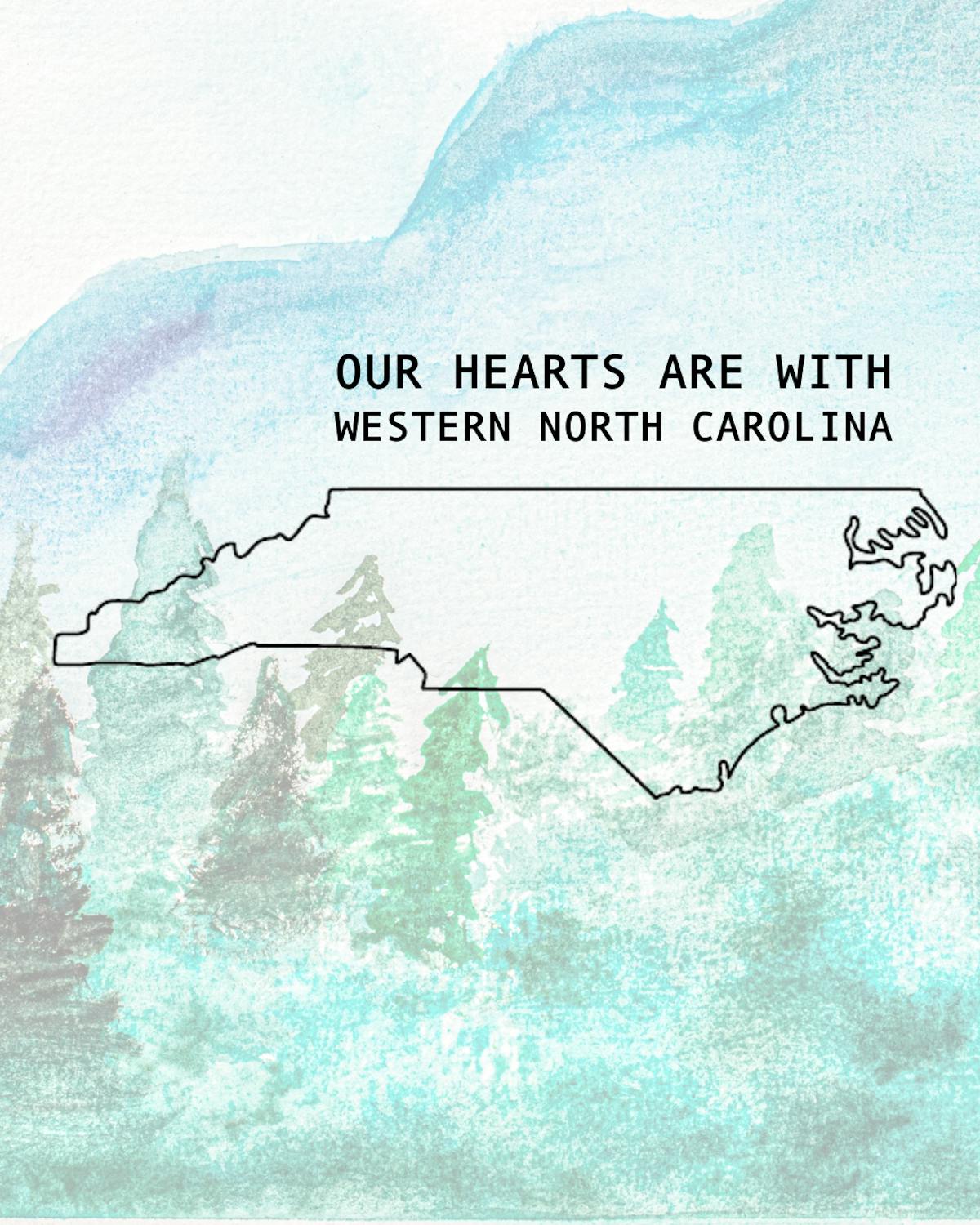After Hurricane Helene
It is very important for us that we can direct both our teams and the public to vetted donation opportunities and aid resources.

Resources
These are the links for Resources and Assistance Needs:
WNC/Asheville Updated Resources with Timestamps
ReadyNC.Gov Resources Assistance
How to Help?
Blue Ridge Public Radio is maintaining a donation resource list here:
Donate to @belovedasheville — an incredible community action organization delivering supplies non-stop:
Donate to @ashevilledreamcenter — they are donating sustainable meals to community members in need. Supply lists available on IG.
Donate to @southernsmokefoundation — they work hard to provide emergency relief specifically for F&B workers.
Work with @wckitchen locally in Asheville, NC:
- To donate funds, equipment and materials to the county, email: Helenedonations@buncombecounty.org
- To volunteer to assist with relief efforts, email Helenedonations@buncombecounty.org
If there are any additional organizations or relief efforts we may have missed, please share them with us!
Guide for Service Industry Members to Apply for Aid
FEMA Financial Assistance
FEMA provides financial support for those affected by disasters, covering temporary housing, emergency home repairs, and personal property losses. Apply for assistance at fema.gov.
Fema Tips & Tricks
The form has a few questions that are tricky. To avoid delay, please follow the following tips:
1. One of the questions that FEMA will ask when you register is “Do You Have Emergency Needs”? This means during your evacuation or since staying at home during the disaster, do you need help with Gas, Medication, Food (meals, water, had no power and everything spoils), Shelter (you are staying with friends, family or in a hotel); Clothing; or Durable Medical Equipment (oxygen, walkers, cane, glasses, all major equipment, etc). If this is true, say “YES” to this question. That will result in your receiving Displacement / Critical Needs Assistance, which is $750.
2. When asked if your home is/was accessible, answer "NO" if there was debris, tree branches, continued flooding, loss of power, damage or destruction that prevented you from staying there after Helene. This question is asking whether you can stay at your home or apartment and will trigger the ability for you to receive assistance to pay for hotels or provide funding to use while you stay with family or friends.
3. When asked “Are you willing to relocate” say "YES" if you cannot live in your home due to damage, loss of power, etc. This question means you are willing to stay in a hotel or apartment temporarily, and triggers that funding for you. It is not asking if you are willing to move away from your home permanently.
4. If you bought or buy a generator, FEMA will reimburse you up to $629, but you must submit the receipt. If you bought a chainsaw, FEMA will reimburse you up to $219. Again, you need to provide the receipt. Save your receipts.
Giving Kitchen
Supports food service workers in crisis through a financial assistance program. Qualifying crises include: injury, illness, death in a food service worker's immediate family (spouse, parent, sibling, child, or caregiver), and housing disaster (flood, fire, or storm damage disrupting a food service worker's work schedule and housing).
Southern Smoke Foundation:
Awards grants and emergency relief funding for food and beverage workers to help pay for essentials like groceries, clothing, and medications due to natural disaster damages and lost wages. The non-profit also offers mental health support with no-cost counseling.
Asheville Food and Beverage United (AVL FBU):
A grassroots organization supporting Asheville’s food and beverage community through advocacy and direct aid. Follow their efforts on Instagram @avlfbu.
Please Note: They will be updating their social media more frequently with assistance opportunities than their website.
Disaster Unemployment Assistance:
If your employment is impacted by a disaster, the NC Department of Commerce Employment Security offers financial support through Disaster Unemployment Assistance. Apply for assistance at: Disaster Unemployment Assistance: NC Department of Commerce Employment Security
CORE (Children of Restaurant Employees)
Gives financial assistance to food & beverage service industry employees with children who experience a life-altering health crisis, injury, death, or natural disaster.
Diaper Bank of North Carolina
Supplies hygiene products that are often overlooked in disaster relief efforts like diapers, period products, adult incontinence supplies, and formula.
Food Bank of Central & Eastern North Carolina
Creates emergency food assistance stations to share meals, nonperishable food, water, and basic necessities to impacted counties.
Red Cross
Provides safe shelter, food, emotional support, relief supplies, and first aid to those affected in the Southeast by Hurricane Helene. Reunification resources are also available for people trying to find a missing loved one.
World Central Kitchen
Serves free meals using food trucks and by partnering with local restaurants and community volunteers. WCK is also supplying free drinking water across North Carolina. Follow their Instagram account for more details and how to support their mission.
